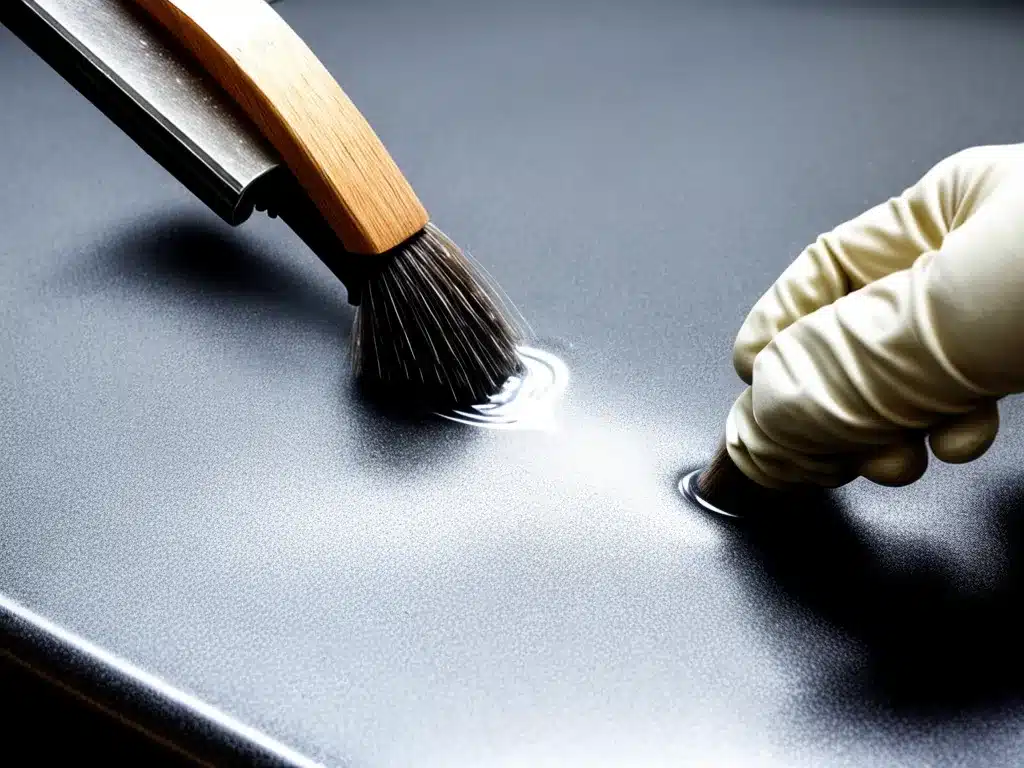Introduction
Cleaning and polishing metal surfaces in your home can be accomplished effectively using natural solutions. Using safe, non-toxic ingredients found in your pantry can restore the shine and luster of metal items without the harsh chemicals found in many commercial metal polishes. In this article, I will discuss some of the best natural solutions for cleaning various types of metal surfaces, and provide tips on how to polish them to a brilliant shine.
Why Use Natural Solutions
There are several benefits to using natural solutions for cleaning and polishing metal:
-
Non-toxic and safe: Most commercial metal cleaners contain harsh chemicals, acids, and abrasives that can be toxic. Natural solutions rely on gentle, food-grade ingredients that get the job done without harmful fumes or residues.
-
Environmentally friendly: Natural solutions avoid theuse of chemicals that can pollute waterways and the environment. Ingredients like vinegar, baking soda and lemon juice are biodegradable.
-
Cost-effective: Pantry items like vinegar, lemon juice and baking soda are very affordable compared to commercial metal polishes and cleaners. A few inexpensive ingredients can clean a multitude of metal items.
-
Effective cleaning: While they are gentle, natural solutions are surprisingly effective at removing tarnish, corrosion, rust and stains from metal surfaces. Gentle scrubbing with non-abrasive ingredients lifts dirt easily without damaging the metal itself.
Effective Natural Ingredients for Cleaning Metal
Here are some of the most commonly used pantry ingredients for cleaning all types of metal surfaces:
Vinegar
-
White vinegar is mildly acidic which helps dissolve oxidation and corrosion. It lifts away tarnish and eliminates musty smells from metals.
-
For tougher jobs, use undiluted vinegar and allow it to sit on the metal for a few minutes before scrubbing and rinsing.
Baking Soda
-
Baking soda is a gentle abrasive that lifts soils from metal surfaces when used as a paste.
-
It can also neutralize and dissolve corrosion caused by exposure to water or moisture.
Lemon Juice
-
The citric acid in lemon juice cuts through tarnish and leaves a streak-free shine.
-
For best results, use undiluted fresh lemon juice and let it sit for 5-10 minutes before scrubbing and rinsing.
Salt
-
Table salt is a mild abrasive that can clean and scour metals effectively.
-
Make a paste with equal parts salt and vinegar or lemon juice to clean copper, bronze and silver items.
Olive Oil
-
Olive oil moisturizes and nourishes metals like brass, copper and bronze to restore their lustre and prevent future tarnishing.
-
Rub a thin coat of olive oil onto clean metal and wipe away excess.
Best Practices for Polishing Metal
Follow these tips to achieve a brilliant polished shine on metal surfaces:
-
Always start by cleaning metal thoroughly with a natural solution to remove dirt, debris, oxidation and tarnish first.
-
For polishing, use a soft lint-free cloth like microfiber, cotton or cheesecloth rather than abrasive scrub pads or sponges.
-
Rub metal gently in the direction of the existing grain – do not scrub back and forth.
-
If polishing a large surface like a tray or bowl, work in small sections.
-
Rinse and wipe metal frequently when polishing to remove residue and check shine.
-
For silver, use a polishing paste made with baking soda, salt and a few drops of water. Rub gently with a soft cloth.
-
Unlacquered brass and copper can be polished with a paste of lemon juice and baking soda.
-
For copper pots and pans, sprinkle salt on a sliced lemon and use it to polish the inside surfaces. The salt acts as a gentle abrasive.
-
Stainless steel can be polished using olive oil or baby oil applied with a soft cloth and buffed to shine.
Solutions for Specific Metals
Here are some of my tried and tested formulas for cleaning and polishing different types of metal:
For Silver
-
Make a paste with 2 tbsp baking soda + 1 tbsp table salt + water. Gently rub onto silver using a soft cloth. Rinse and dry with a clean cloth.
-
Soak silver items in hot water with a piece of aluminium foil to loosen tarnish. Wash with mild dish soap afterwards.
-
Polish cleaned silver items with a dab of toothpaste and a soft cloth. Rinse thoroughly and pat dry.
For Bronze
-
Make a thick paste with 1 part lemon juice and 2 parts baking soda. Apply to bronze and allow to sit for 10 minutes before scrubbing and rinsing.
-
For polishing, rub a thin layer of olive oil over clean bronze using a soft cloth. Buff to a lustrous shine.
For Copper
-
Sprinkle salt on a lemon slice. Rub the salted lemon on copper pots, kettles and utensils to clean and polish.
-
For copper pans, sprinkle salt on a lemon half and scrub the inside surface. Rinse and dry thoroughly.
-
Clean stubborn stains on copper by boiling a solution of 2 cups white vinegar + 4 tbsp salt. Submerge and simmer copper items for 15 minutes, then rinse.
For Stainless Steel
-
Mix 2 tbsp baking soda + 1 tsp olive oil + water to form a paste. Gently rub onto stainless steel using a soft sponge or cloth.
-
Polish dry stainless steel by rubbing a small amount of olive oil, baby oil or coconut oil using a soft lint-free cloth.
-
For stainless steel sinks, clean with a paste of 3 parts baking soda + 1 part water. Scrub gently with a soft sponge and rinse.
Conclusion
Cleaning and polishing metal items using natural solutions is an easy, safe and effective method. With just a few simple pantry ingredients and some elbow grease, you can restore the luster and shine to all types of metal surfaces in your home. Follow these tips and formulas to keep your metal items looking their very best.







